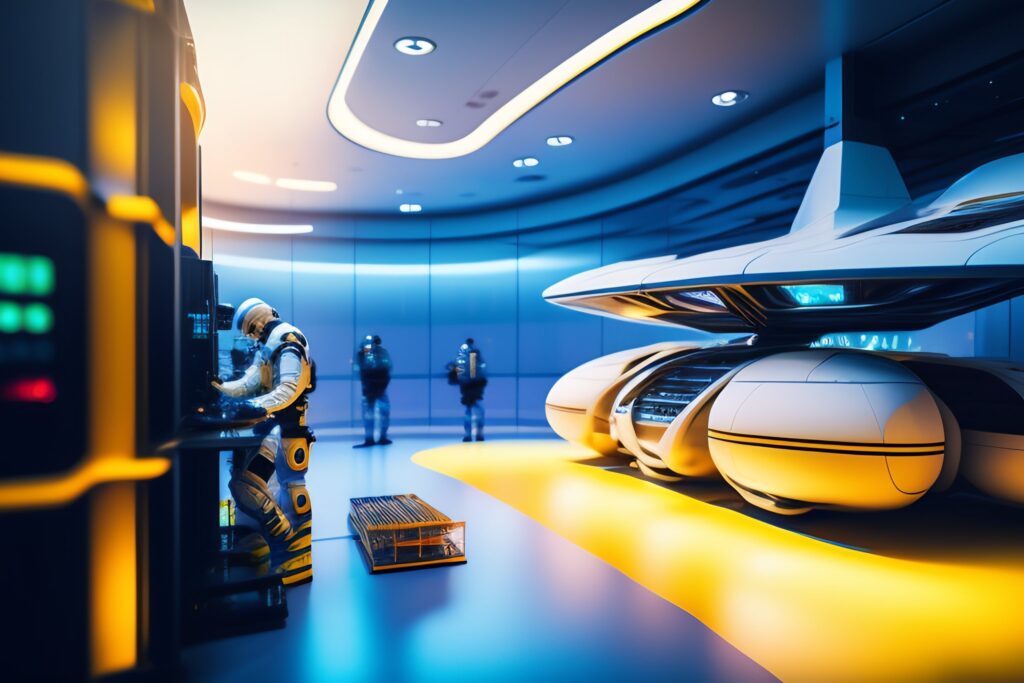The Role of Robotics in Space Exploration: Advancements, Challenges, and Future Prospects
Introduction
Space exploration has always been a frontier of human curiosity and ambition. Over the years, advancements in technology have played a pivotal role in expanding our understanding of the universe. One such technological advancement that has revolutionized space exploration is robotics. The use of robots in space missions has opened new possibilities, enabling us to reach farther, explore deeper, and gather crucial data that would otherwise be inaccessible. In this blog, we will delve into the significant role that robotics plays in space exploration, highlighting the advancements made, the challenges faced, and the promising prospects.

Advancements in Robotic Space Exploration:
Robotic systems have proven to be invaluable assets in space exploration. From unmanned missions to remote-controlled rovers, robots have allowed us to venture into space with precision and efficiency. One of the most iconic examples of robotic exploration is NASA’s Mars rovers, including Spirit, Opportunity, and Curiosity. These rovers have traversed the Martian surface, capturing breathtaking images, collecting samples, and providing valuable insights into the red planet’s geology and potential habitability.
Moreover, robotic spacecraft like Voyager and New Horizons have extended human reach beyond our solar system, capturing unprecedented images of distant planets and their moons. These robotic pioneers have expanded our knowledge of the outer reaches of our universe, paving the way for future manned missions.
Challenges and Limitations:
While robotics has greatly advanced space exploration, it is not without its challenges and limitations. One of the significant hurdles is the vast distance involved. Communication delays can range from minutes to hours, depending on the distance between Earth and the robotic spacecraft. This poses challenges for real-time control and decision-making during missions, requiring advanced autonomous capabilities for robots to navigate and adapt to unforeseen circumstances.
Another challenge is the harsh and unpredictable environment of space. Extreme temperatures, radiation, and vacuum conditions can be detrimental to the functioning of delicate electronic components. Engineers and scientists must design robots with ruggedness and resilience in mind to ensure their survival in these hostile conditions.
Prospects and Emerging Technologies:
Despite the challenges, the future of robotic space exploration looks promising. Scientists and engineers are continually developing innovative technologies to overcome existing limitations and enhance the capabilities of robotic systems.
One such technology is swarm robotics, where multiple robots work together in a coordinated manner. Swarm robotics can provide redundancy, improve data collection efficiency, and enable more extensive exploration of planetary surfaces. These swarms could be equipped with specialized sensors and instruments to gather diverse data and collaborate on complex tasks.
Additionally, advancements in artificial intelligence (AI) and machine learning have the potential to revolutionize robotic space exploration. AI-powered robots can adapt to changing environments, learn from their experiences, and make autonomous decisions. This opens possibilities for more independent and intelligent robots capable of performing complex tasks without constant human intervention.
Conclusion:
Robotics has proven to be a game-changer in the field of space exploration. From rovers traversing the surface of Mars to spacecraft venturing beyond our solar system, robots have extended our reach and deepened our understanding of the universe. Despite the challenges posed by distance, harsh environments, and communication delays, scientists and engineers continue to innovate, pushing the boundaries of robotic technology.
As emerging technologies like swarm robotics and AI-driven systems gain momentum, we can expect even greater strides in the future. These advancements will enable us to explore new celestial bodies, study the origins of the universe, and potentially uncover signs of extra-terrestrial life. The role of robotics in space exploration is pivotal, and its impact will continue to shape our understanding of the cosmos, inspiring future generations of scientists, engineers, and explorers to push the boundaries of human knowledge.

